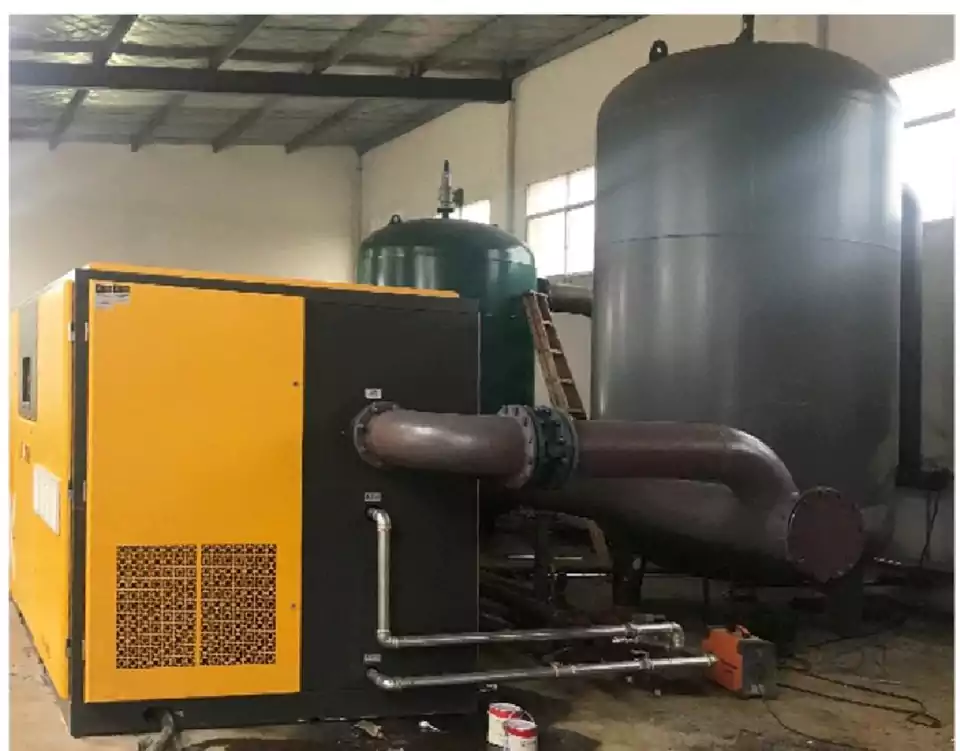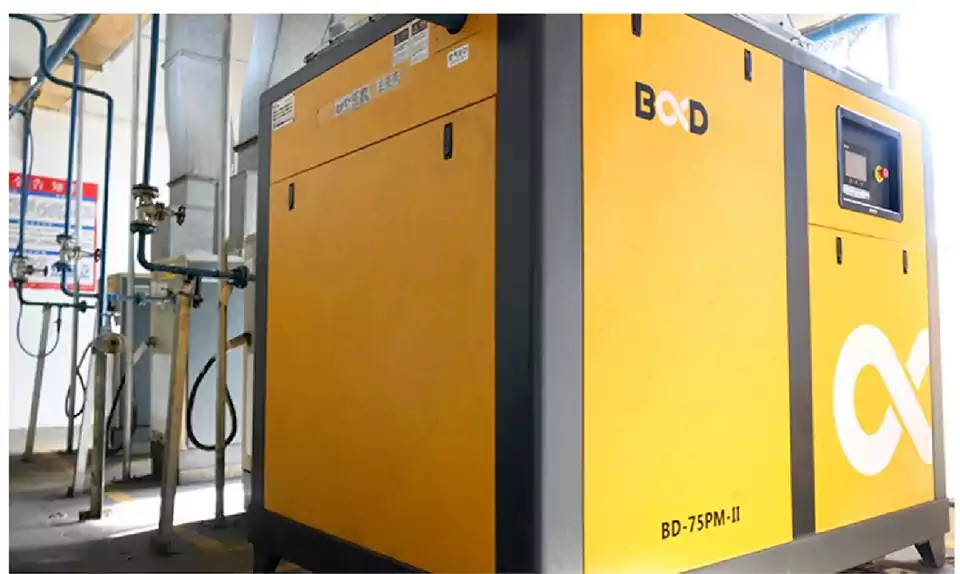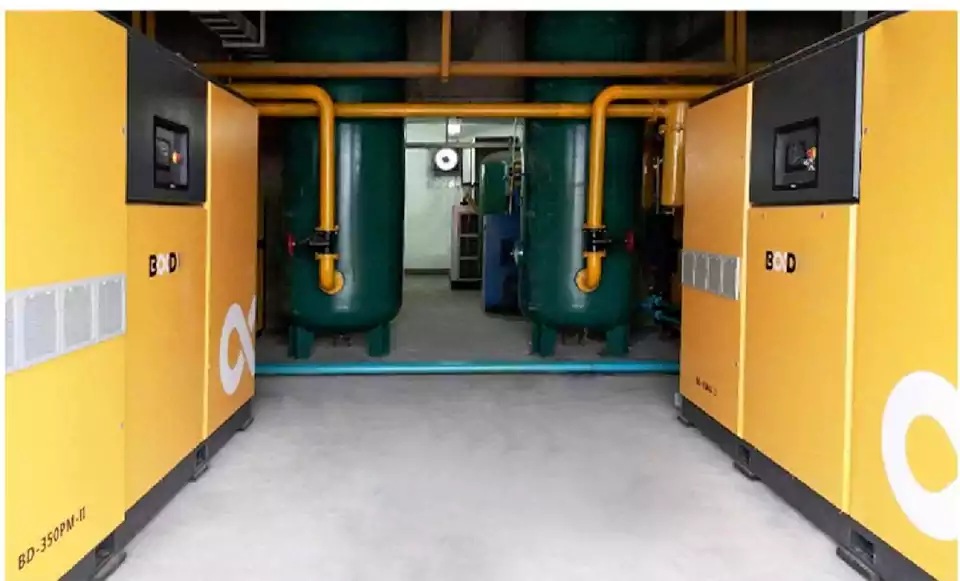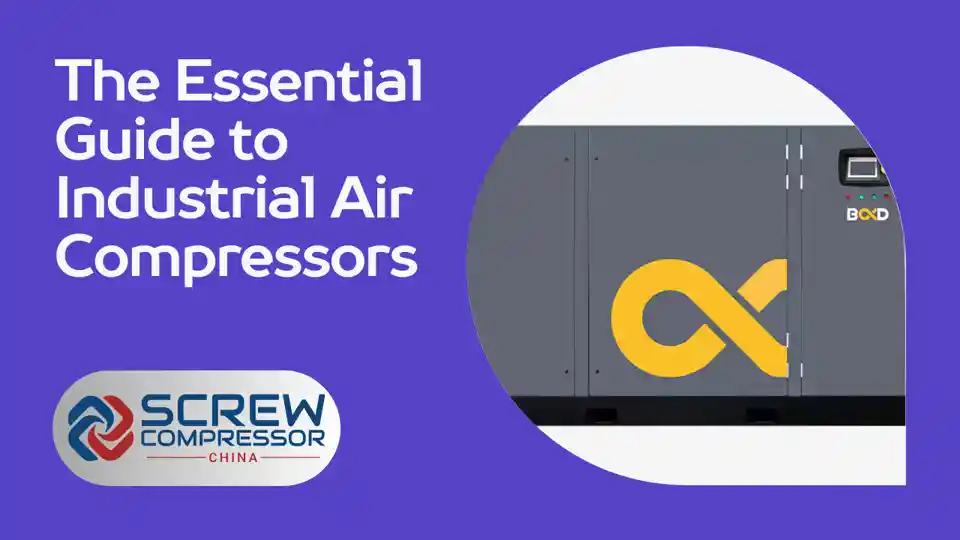
Industrial air compressors are vital pieces of equipment for many businesses, powering tools and machinery in manufacturing plants, auto repair shops, construction sites, and more. Choosing the right air compressor is crucial for ensuring optimal performance, reliability, and energy efficiency. This comprehensive guide to rotary screw air compressors will explore the different types of industrial air compressors, key factors to consider when selecting one, and the leading brands in the industry.
Choosing the Right Industrial Air Compressor
Selecting the appropriate industrial air compressor for your specific needs involves careful consideration of several factors, including the type of compressor, its performance capabilities, and energy efficiency.
Understanding Air Compressor Types
Industrial air compressors come in various types, each with its own advantages and suitable applications. The most common types include:
- Rotary Screw Compressors: Known for their efficiency and continuous operation capabilities, rotary screw compressors are ideal for industries requiring a constant supply of compressed air. They feature two meshing rotors that compress air as it moves through the compressor.
- Oil-Free Compressors: In industries where air purity is critical, such as food processing, pharmaceuticals, and electronics manufacturing, oil-free compressors are essential to prevent contamination. These compressors use special coatings and materials to operate without the need for lubricating oil.
- Reciprocating Compressors: Also known as piston compressors, these units are suitable for smaller applications or where intermittent use is required. They compress air using a reciprocating piston inside a cylinder.
- Centrifugal Compressors: These dynamic compressors are designed for high-volume, continuous-use applications. They use an impeller to accelerate and compress air, making them highly efficient and reliable.
Factors to Consider
When choosing an industrial air compressor, several key factors should be taken into account to ensure the unit meets your specific needs:
- Air Demand: Determine the volume of air required for your applications, considering both the pressure (measured in PSI) and flow rate (measured in CFM).Understanding PSI and CFM in air compressors is crucial for selecting the right compressor size.
- Energy Efficiency: Look for compressors with high energy efficiency ratings to minimize operating costs.Variable speed drive (VSD) compressors can provide significant energy savings by adjusting their output to match air demand.
- Reliability and Maintenance: Choose a compressor from a reputable manufacturer known for producing reliable, durable equipment. Consider the maintenance requirements and the availability of local support for servicing and parts.
- Noise Levels: If the compressor will be located in a workspace, look for models with low noise levels to minimize disruption and ensure compliance with workplace regulations.
- Size and Footprint: Consider the available space for the compressor and choose a model with a compact footprint that fits your facility.

Leading Air Compressor Brands and Manufacturers
The industrial air compressor market is home to several renowned brands known for their quality, performance, and reliability. Some of the top manufacturers include:
Atlas Copco
Atlas Copco is a global leader in compressed air technology, offering a wide range of industrial air compressors for various applications. Their products are known for their energy efficiency, reliability, and low maintenance requirements.
Ingersoll Rand
With over 145 years of experience, Ingersoll Rand is a trusted name in the compressed air industry. They offer a comprehensive portfolio of air compressors, parts, and accessories, backed by a worldwide service network.
Kaeser Compressors
Kaeser Compressors is a leading manufacturer of industrial air compressors, known for their energy-efficient designs and advanced features. Their rotary screw compressors incorporate the proprietary Sigma Profile airend, which provides significant energy savings compared to conventional designs.
Quincy Compressor
Quincy Compressor has been producing high-quality air compressors for over 100 years. Their rotary screw air compressors are designed for reliability, performance, and ease of maintenance, making them a popular choice for industrial applications.
Applications of Industrial Air Compressors
Industrial air compressors play a crucial role in a wide range of industries and applications, powering pneumatic tools, machinery, and processes. Some common applications include:
- Manufacturing: Air compressors are used extensively in manufacturing plants to operate assembly line equipment, power tools, and material handling systems.
- Automotive: In auto repair shops and tire service centers, air compressors supply compressed air for impact wrenches, spray guns, and tire inflation.
- Construction: Portable air compressors are essential on construction sites for powering pneumatic tools such as nail guns, jackhammers, and sandblasters.
- Food and Beverage: In the food and beverage industry, oil-free air compressors provide clean, contaminant-free air for packaging, bottling, and processing applications.
- Healthcare: Medical and dental facilities rely on oil-free air compressors to supply clean, dry air for instruments, equipment, and patient care.

Frequently Asked Questions
Q: What is the difference between an oil-lubricated and oil-free air compressor?
A: Oil-lubricated compressors use oil to lubricate and cool the compression components, while oil-free compressors use special coatings and materials to operate without oil. Oil-free compressors are essential in applications where air purity is critical to prevent contamination.
Q: How do I determine the right size air compressor for my needs?
A: To select the appropriate size air compressor, you need to consider your air demand, which is determined by the pressure (PSI) and flow rate (CFM) requirements of your tools and equipment. Consult the manufacturer’s specifications or seek guidance from a compressed air professional.
Q: What maintenance is required for an industrial air compressor?
A: Regular maintenance is essential to ensure the longevity and performance of your air compressor. This includes changing air filters, oil filters, and lubricants at the recommended intervals, as well as inspecting and servicing the compressor components according to the manufacturer’s guidelines. A comprehensive guide to air compressor maintenance and usage can help you keep your compressor in top condition.
By understanding the different types of industrial air compressors, the key factors to consider when choosing one, and the leading brands in the industry, you can make an informed decision and select the best air compressor for your specific needs. Investing in a high-quality, reliable air compressor will ensure optimal performance, energy efficiency, and minimal downtime for your business.
Meta Description:
Discover the essential guide to industrial air compressors, covering types, top brands, applications, and key factors to consider when choosing the right compressor for your business. Make an informed decision and optimize your compressed air system with expert insights and recommendations.
